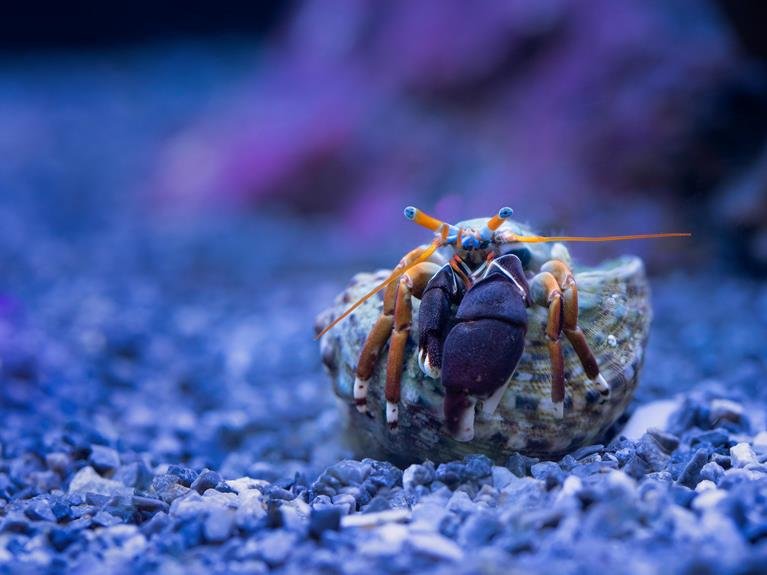When deciding between JB Marine Weld and Waterweld, consider chemical properties for effectiveness. JB Marine Weld offers superior long-term adhesion and corrosion resistance; Waterweld excels in bonding to wet surfaces with quick drying. Both guarantee durability in water. JB Marine Weld takes longer to dry but cures fully in 15-24 hours, while Waterweld hardens in as little as 25-30 minutes. Understand adhesion strength, durability, application ease, and resistance to water for informed choices. Further insights await to help you make the best decision for your project.
A Quick Overview
- JB Marine Weld offers superior long-term adhesion and corrosion resistance.
- Waterweld excels in bonding to wet surfaces and provides quick drying.
- Consider project timeline and requirements for ease of use.
- Both products guarantee durability in marine environments.
- JB Marine Weld cures in 15-24 hours, while Waterweld cures in up to an hour.
Composition and Formulation
When comparing JB Marine Weld and Waterweld, their chemical properties, effectiveness, long-term performance, and compatibility are important factors to take into account.
The composition and formulation of these products greatly impact their overall effectiveness. Understanding how these elements interact can help you make an informed decision on which product best suits your needs.
Compatibility with different materials and long-term performance are key aspects to evaluate when choosing between JB Marine Weld and Waterweld.
Adhesion Strength and Durability
For evaluating the effectiveness of JB Marine Weld and Waterweld, examining their adhesion strength and durability is essential. When comparing the two products, consider the following:
- Longevity comparison: JB Marine Weld offers superior long-term adhesion compared to Waterweld.
- Bonding capabilities: Waterweld excels in bonding to wet surfaces, while JB Marine Weld provides a stronger bond on dry surfaces.
- Durability: JB Marine Weld demonstrates greater resistance to corrosion and environmental elements over time.
Application Process and Ease of Use
To apply JB Marine Weld or Waterweld effectively, follow these straightforward steps for a seamless bonding process. Both products offer ease of application, with simple mixing and application procedures.
JB Marine Weld typically has a longer drying time compared to Waterweld, which dries relatively quickly. Understanding the differences in drying time can help you choose the product that best fits your project timeline and requirements.
Resistance to Water and Marine Environments
Achieve peak performance in water and marine environments by evaluating the resistance of JB Marine Weld and Waterweld to these specific conditions. When considering corrosion protection and saltwater resistance, here's what you need to note:
- JB Marine Weld provides exceptional corrosion protection.
- Waterweld is specifically designed for excellent saltwater resistance.
- Both products guarantee durability in challenging aquatic settings.
Cure Time and Setting Properties
When evaluating JB Marine Weld and Waterweld for their cure time and setting properties, consider the efficiency and effectiveness in various applications.
JB Marine Weld generally sets in 4-6 hours and fully cures in 15-24 hours, offering strong adhesive properties.
Conversely, Waterweld boasts a quicker setting time, typically hardening in 25-30 minutes, but may take up to an hour for full curing with reliable strength properties.
Flexibility and Versatility
For enhanced adaptability and a broader range of applications, both JB Marine Weld and Waterweld exhibit impressive flexibility and versatility in their bonding capabilities.
Here's how they compare:
- Strength vs Flexibility: JB Marine Weld offers superior strength for heavy-duty marine applications, while Waterweld provides exceptional flexibility for versatile water-related tasks.
- Marine vs Water Applications: JB Marine Weld is ideal for marine repairs, while Waterweld excels in various water-based projects.
- Multi-Purpose Use: Both products can be used in a wide range of applications, offering flexibility and adaptability for different projects.
Cost-Effectiveness and Value for Money
Considering the overall cost-effectiveness and value for money, evaluating JB Marine Weld and Waterweld proves essential for making an informed decision on your bonding needs.
JB Marine Weld offers excellent cost efficiency with strong bonding capabilities, while Waterweld provides a more budget-friendly option suitable for less demanding applications.
A performance comparison between the two will help you determine which product aligns best with your requirements.
User Reviews and Recommendations
Based on user feedback and recommendations, both JB Marine Weld and Waterweld have received notable praise for their bonding performance. Here's what users have to say:
- Pros and Cons
- JB Marine Weld: Users appreciate its strong bond but mention it can be challenging to work with.
- Waterweld: Easy application is highlighted, but some users mention durability concerns.
- Real Life Experiences
- JB Marine Weld: Users mention success in repairing boats and underwater equipment.
- Waterweld: Users praise its versatility for various repair projects.
Frequently Asked Questions
Can JB Marine Weld Be Used for Underwater Repairs?
Yes, JB Marine Weld can be used for underwater repairs. Its compatibility with underwater applications and strong adhesive strength make it an effective choice for marine repair tasks requiring durable and long-lasting bonds in submerged environments.
Does Waterweld Work Well on Non-Metal Surfaces?
Yes, Waterweld works well on non-metal surfaces. Its adhesion durability and application versatility make it a great choice for various repairs. You can trust it to handle different materials with ease and effectiveness.
Is the Odor of JB Marine Weld Strong?
Yes, the odor of JB Marine Weld is strong. When using it for underwater application, be prepared for the pungent smell. Despite this, it is effective for bonding underwater surfaces and offers a reliable hold.
Can Waterweld Be Sanded and Painted Over?
Yes, Waterweld can be sanded smoothly to create a clean surface for painting. Once sanded, it is ready for your preferred paint application. This allows you the flexibility to customize your project as you wish.
Are There Any Color Options Available for JB Marine Weld and Waterweld?
When selecting between JB Marine Weld and Waterweld, you'll find color options for both. These products offer application flexibility, allowing you to choose the best fit for your project. Enjoy the freedom to pick what suits you best!


